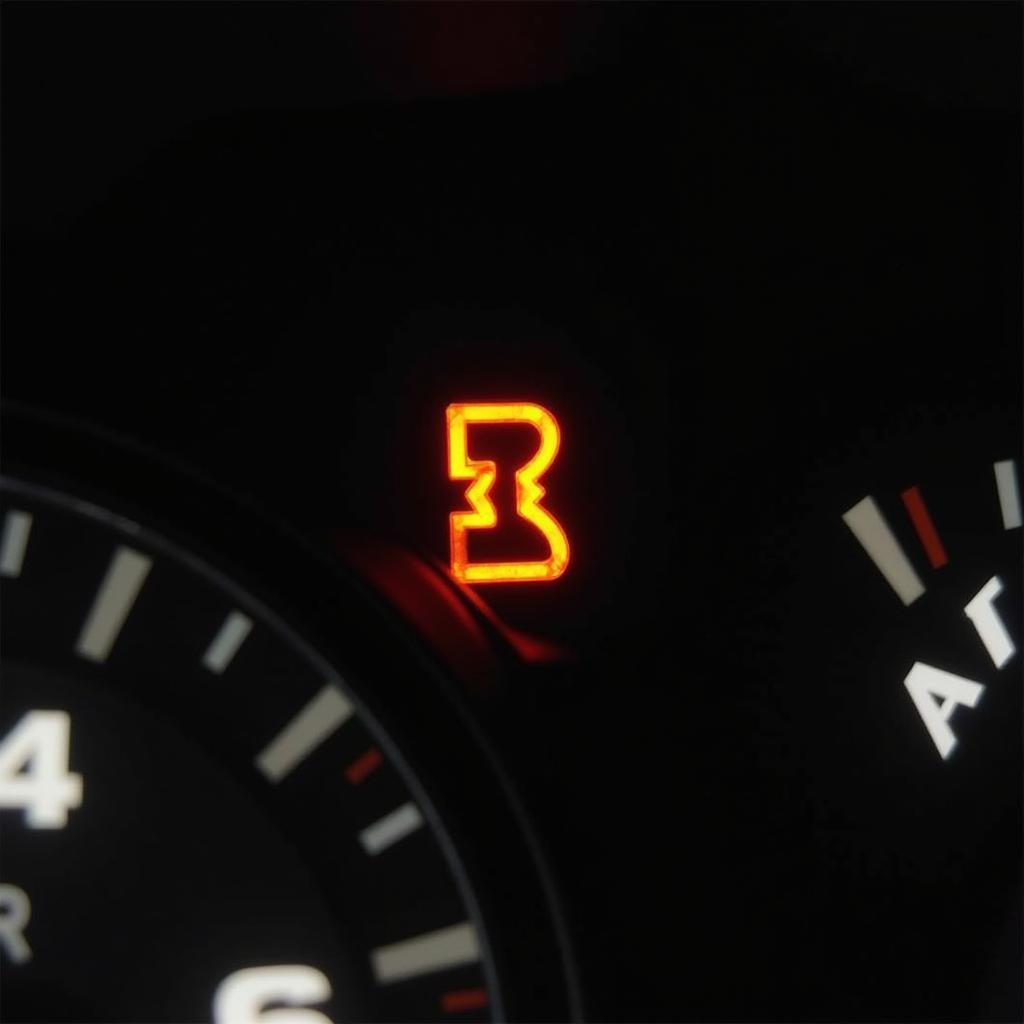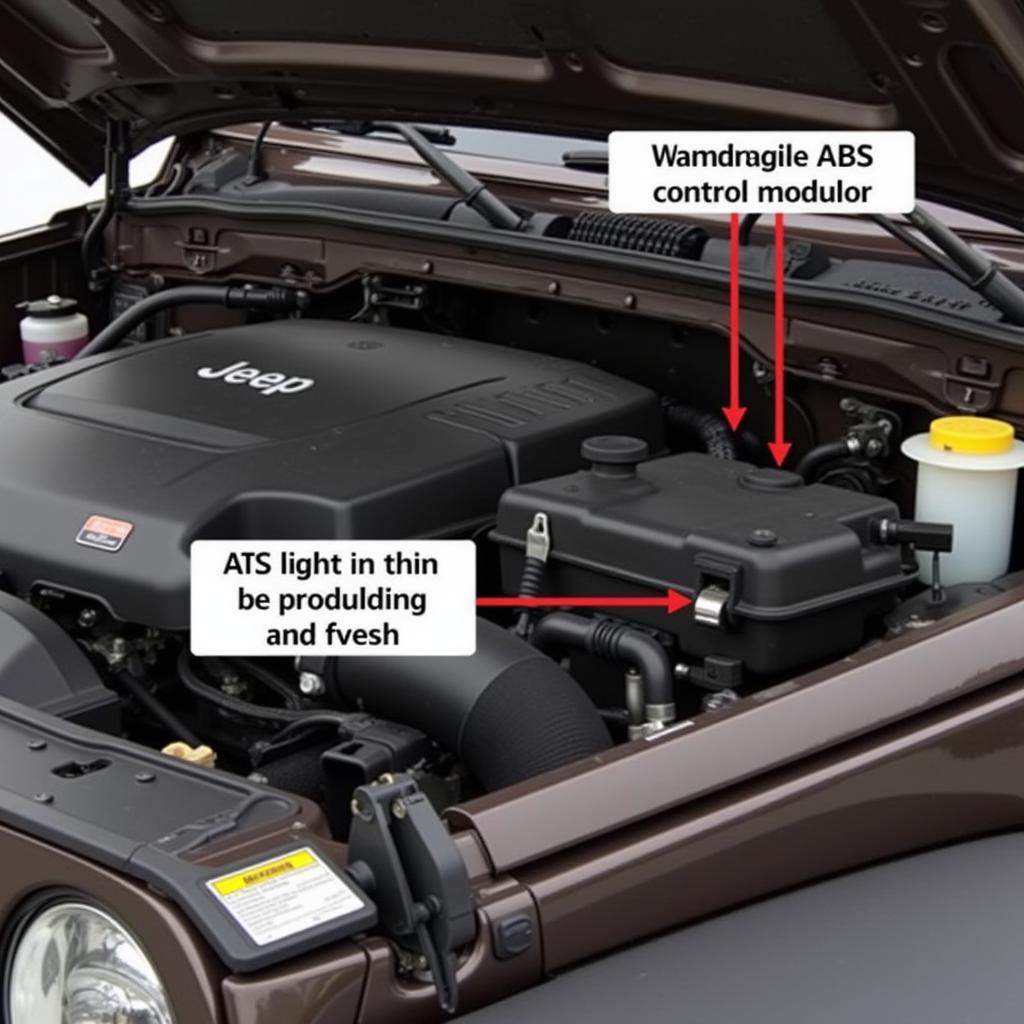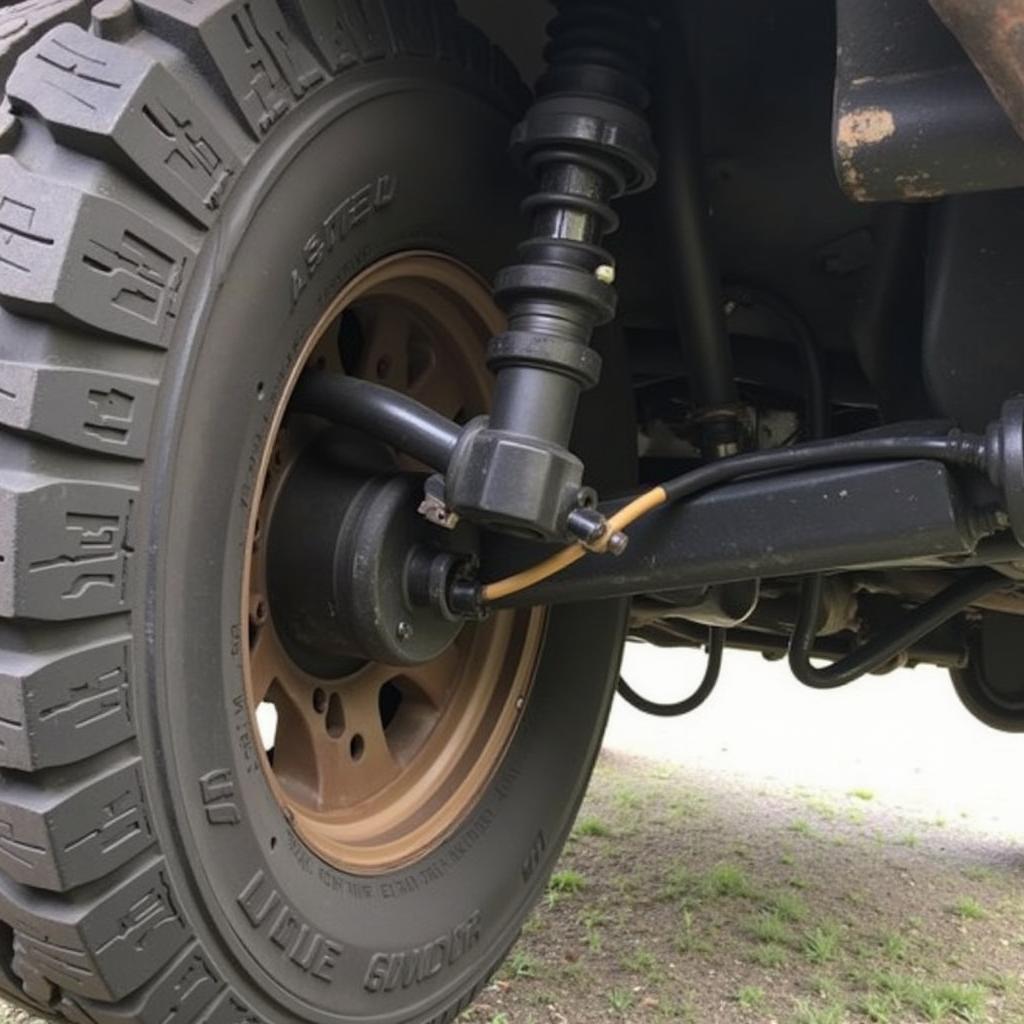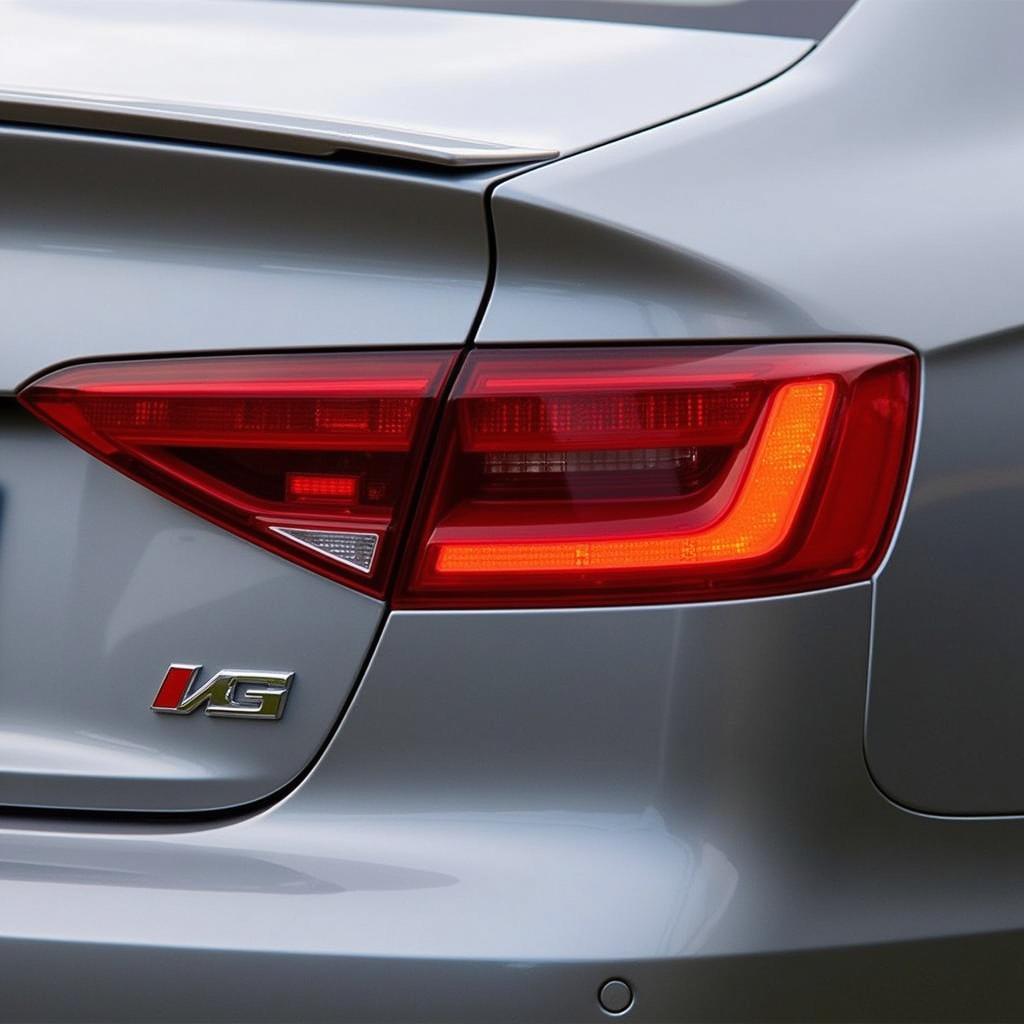The brake warning light on your 2010 Jeep Wrangler is a crucial safety feature that shouldn’t be ignored. When illuminated, it signals a potential issue within your braking system, demanding immediate attention. This article delves into the common causes behind a 2010 Jeep Wrangler brake warning light and offers practical solutions to help you get back on the road safely.
 2010 Jeep Wrangler Brake Warning Light on Dashboard
2010 Jeep Wrangler Brake Warning Light on Dashboard
Understanding Your Jeep’s Brake Warning System
Before we jump into the causes, it’s essential to understand how your Jeep’s brake warning system operates. The system primarily relies on two key components:
- Brake Fluid Level Sensor: This sensor constantly monitors the brake fluid level in the master cylinder. If the fluid level drops below a safe threshold, the brake warning light will illuminate, signaling a potential leak or worn-out brake pads.
- Parking Brake Switch: This switch activates the brake warning light when the parking brake is engaged. If the light remains on even after disengaging the parking brake, it indicates a potential issue with the switch itself or the wiring connected to it.
Common Causes of a 2010 Jeep Wrangler Brake Warning Light
Several factors can trigger the brake warning light in your 2010 Jeep Wrangler. Here are the most common culprits:
1. Low Brake Fluid
One of the most prevalent reasons for the brake warning light to activate is low brake fluid. This could be due to:
- Brake Fluid Leak: Inspect your brake lines, calipers, and wheel cylinders for any signs of leakage, such as wet spots or drips.
- Worn Brake Pads: As your brake pads wear down, the brake calipers need more fluid to function correctly, resulting in a lower fluid level in the master cylinder.
2. Faulty Parking Brake Switch
If the brake warning light stays on even after releasing the parking brake, a faulty parking brake switch is a likely culprit. This switch can malfunction due to wear and tear, exposure to moisture, or electrical issues.
3. ABS System Malfunction
Modern vehicles like the 2010 Jeep Wrangler are equipped with Anti-lock Brake Systems (ABS). A malfunction within this system, such as a faulty ABS sensor or control module, can trigger the brake warning light.
 Faulty ABS Control Module in 2010 Jeep Wrangler
Faulty ABS Control Module in 2010 Jeep Wrangler
4. Electrical Issues
Electrical problems, such as loose wiring, corroded connectors, or a blown fuse related to the brake warning system, can also cause the light to illuminate.
Troubleshooting the Brake Warning Light
If your 2010 Jeep Wrangler’s brake warning light comes on, it’s crucial not to ignore it. Here’s a step-by-step guide to help you troubleshoot the problem:
-
Check the Brake Fluid Level: Safely park your vehicle on a level surface and engage the parking brake. Locate the brake fluid reservoir (typically a translucent container with a black cap) and check the fluid level. If it’s below the minimum mark, add the recommended brake fluid type.
-
Inspect for Leaks: Carefully examine the brake lines, calipers, and wheel cylinders for any signs of fluid leakage. If you notice any leaks, address them immediately as they can significantly compromise your braking performance.
 Leaking Brake Fluid Line in 2010 Jeep Wrangler
Leaking Brake Fluid Line in 2010 Jeep Wrangler
-
Check the Parking Brake: Ensure the parking brake is fully released. If the light persists, the parking brake switch might be faulty and require replacement.
-
Consult a Professional Mechanic: If you’re unable to pinpoint the cause or address the issue yourself, it’s best to seek professional assistance. A qualified mechanic with experience in Jeep vehicles can accurately diagnose the problem using specialized diagnostic tools and recommend the appropriate repairs.
Conclusion
The brake warning light on your 2010 Jeep Wrangler is a critical safety indicator that should never be disregarded. By understanding the potential causes and following the troubleshooting steps outlined above, you can address the issue promptly and ensure the optimal performance of your Jeep’s braking system. Remember, a well-maintained braking system is paramount for your safety and that of others on the road.

